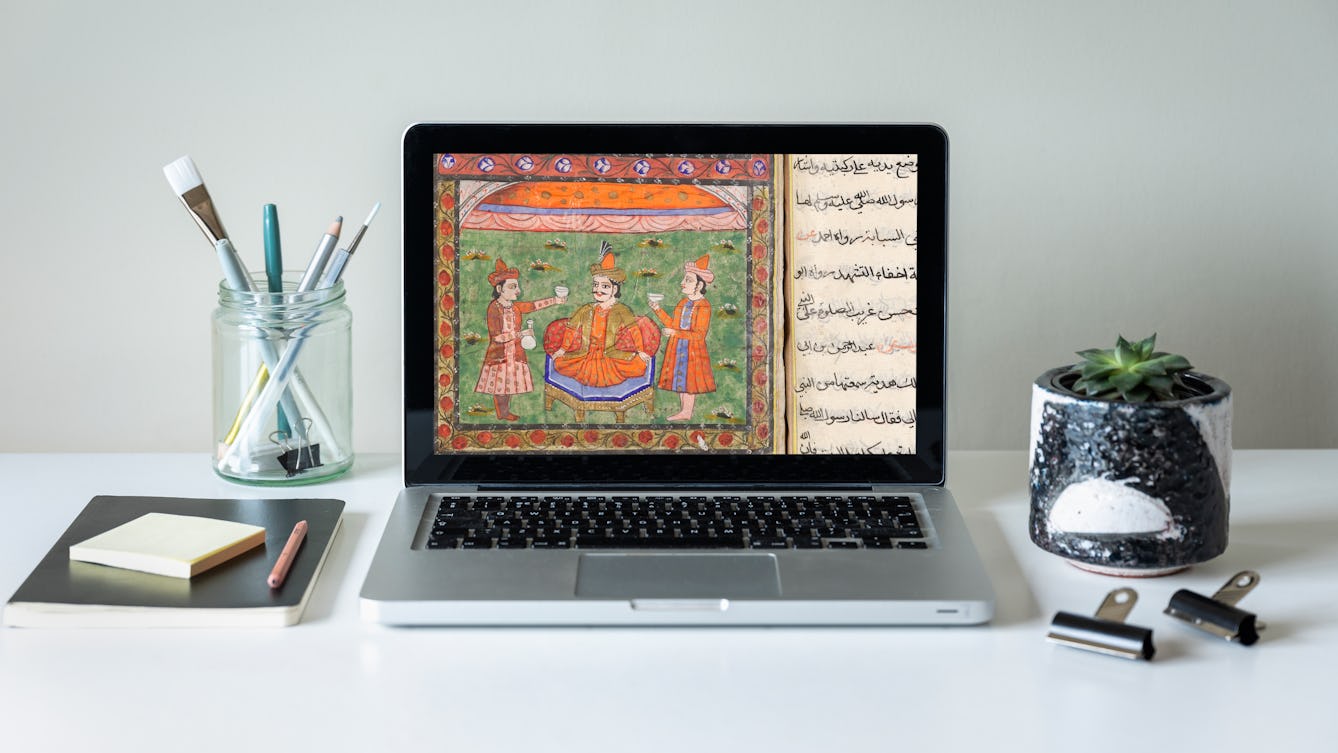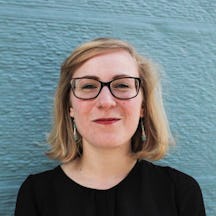Unfolding histories within Arabic manuscripts
- Free
- Discussion
- Auto-captioned

Join researcher Rosie Maxton for a recording of an online event introducing our Arabic manuscript collection and exploring the multi-layered histories folded within their pages.
Drawing on selected manuscripts, Rosie focuses on the unique annotations that people in various places have added over time. She talks about what these scribbles, marks and notes in the margins can reveal about the manuscripts and how they were created and used.
The conversation is facilitated by Dr Adrian Plau, Collections Information Analyst at Wellcome Collection.
The event took place on our YouTube channel. It was live-captioned in English and auto-captioned in Arabic.
Dates
Need to know
Guaranteed (online)
Booking a ticket guarantees you entry to the online event. You will be given joining instructions in your confirmation email.
Auto-captioned
There will be automatically generated subtitles for this event.
For more information, please visit our Accessibility page. If you have any queries about accessibility, please email us at access@wellcomecollection.org or call 0 2 0. 7 6 1 1. 2 2 2 2
About your contributors
Rosie Maxton
Rosie Maxton is a doctoral student in History at Somerville College, Oxford. She holds an MA in Arabic and Medieval History from St Andrews University, and an MPhil in Middle Eastern Studies from the University of Cambridge. Her research explores the spread of Catholicism among Christians in the eastern Ottoman Empire during the early modern period, focusing primarily on manuscript sources in Arabic and Syriac. She has previously worked on digital catalogue records for the Arabic manuscripts of Trinity College, Cambridge and Wellcome Collection, and has taught Arabic language at the universities of St Andrews and Edinburgh.
Adrian Plau
Adrian Plau is Manuscript Collections Information Analyst at Wellcome Collection, and a recent Headley Fellow with the Art Fund. He holds a PhD in South Asia Studies from SOAS.

